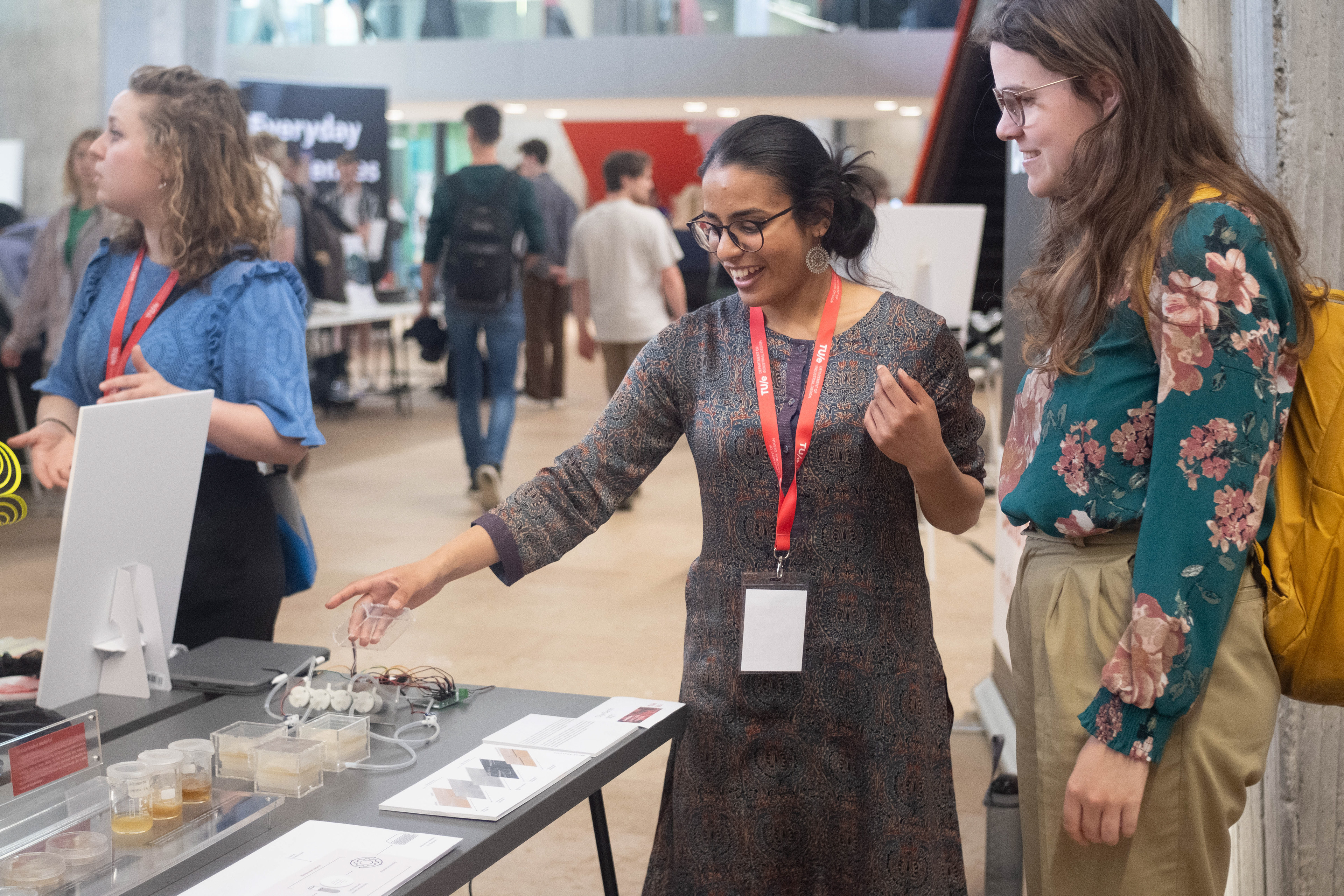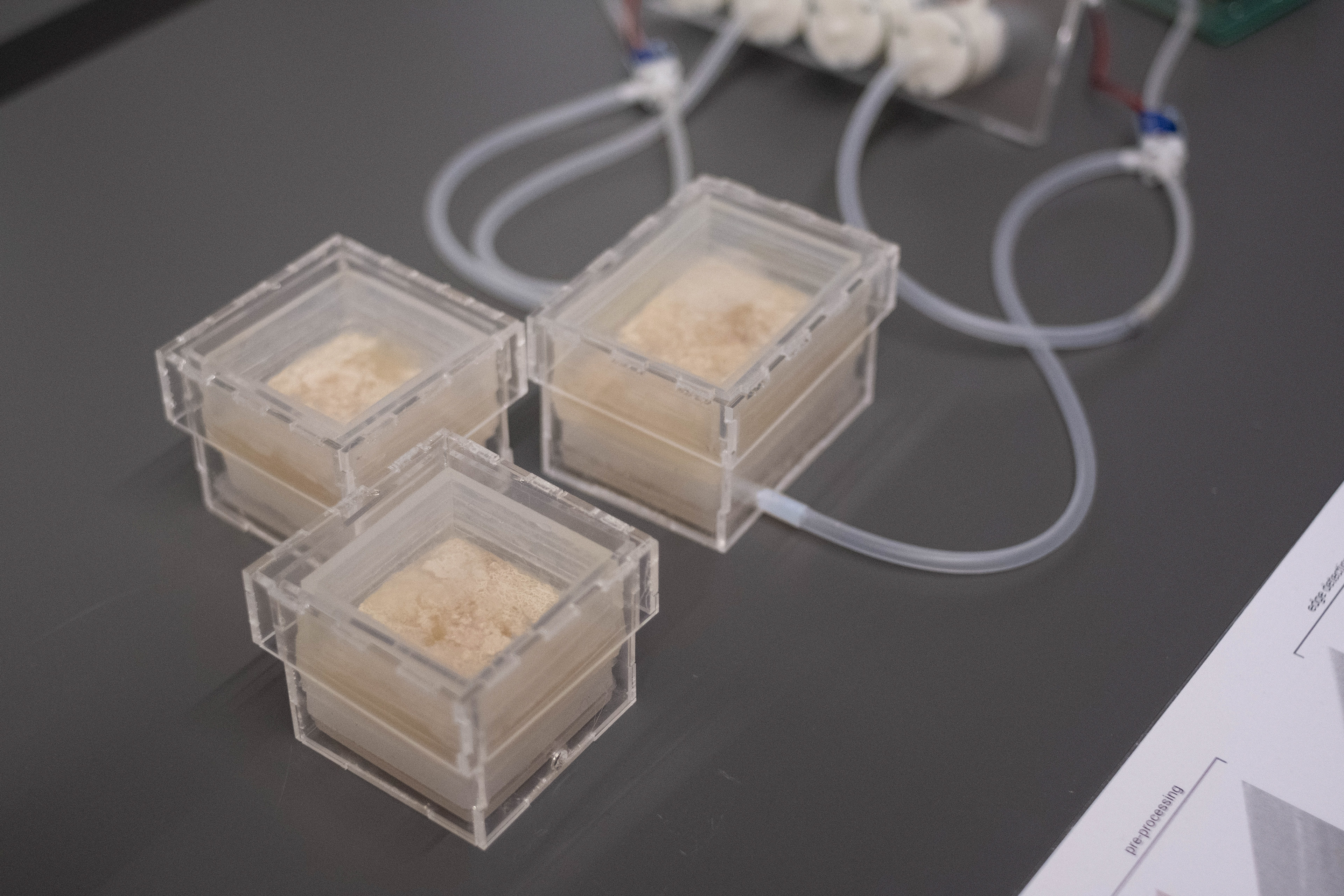M2.1: Not So Subtle
unpacking bacillus subtilis biofilms as a material for engagement
[design research] [emerging living materials] [microbiology]
February 2024 - June 2024
Over the past years, HCI and design communities have witnessed extensive explorations in embedding microorganisms in everyday contexts. However, further development in this area requires synergies between the emergent interdisciplinary fields of engineered living materials (ELMs) and HCI.
In response to recent calls for the need of integrating interdisciplinary concepts, this project introduces a key biotechnological concept in designing living media interfaces (LMIs): cell encapsulation. By focusing on Bacillus subtilis biofilms as a form of cell encapsulation, I seek to offer insights at unravelling the potential of bacterial biofilms as a material for engagement for designers. In this research-through-design inquiry, I bring attention to the dynamic shape change and viscoelasticity of bacterial biofilms. Through the demonstration of exploratory and collaborative fabrication methods, this project aims to uncover the possibilities inherent in bacterial biofilms and unpack its livingness for future LMIs.
right: demoday presentation at TU/e


Growing biofilms on different media
Biofabrication process
PI&V Development at the end of M1.1
This project furthered my understanding of how bacterial biofilms’ dynamic shape change and viscoelasticity could inspire new interaction paradigms. Through this exploration, I’ve grown to view design as an act of cultivating relations—between disciplines, materials, and ecologies—shaping a more inclusive and interconnected design practice.
Biodesign and more-than-human (MtH) design are inherently complex, rooted in ethical considerations and require a genuine grasp of ecological systems. This project illuminated ecological entanglements and the significance of material histories, offering a lens to evaluate broader implications of design choices. To design today is to embrace complexity, act thoughtfully, and remain open to criticism and iterative reflection.
These reflections reshaped my vision to reject mastery over the environment and instead foreground our role within a larger ecology. This evolving perspective reaffirms my commitment to designing with care and interconnectedness.
Competency development